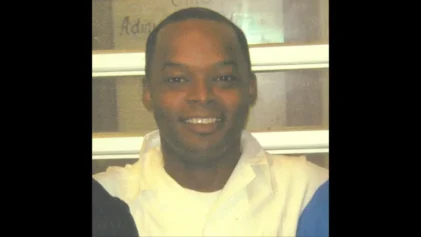The estate of a 20-year-old woman with cerebral palsy filed a federal lawsuit after she was declared deceased by first responders in Southfield, Michigan, and placed in a body bag despite not being dead.
A court ruled on July 26 that the paramedics were immune from civil prosecution.
Timesha Beauchamp was pronounced dead on Aug. 23, 2020, at her residence by EMTs after they ended life-saving procedures when they noticed no signs of life.

The first responders arrived on the scene 20 minutes after Beauchamp’s mother, Erika Lattimore, found her unresponsive in her bedroom. At approximately 8 a.m., the EMTs stopped performing CPR and pronounced her dead, according to Courthouse News Service.
However, family members noticed her chest moving and claimed that she still had a pulse, but the paramedics claimed that Beauchamp’s chest movements and pulse were a result of her body reacting to medications and not signs of life. The lawsuit named the first responders as Michael Storms, Scott Rickard, Phillip Mulligan, and Jake Kroll.
“Mulligan and Kroll attempted CPR and ventilation using a bag valve mask. After about half an hour, the First Responders discontinued efforts to resuscitate Beauchamp and declared her dead,” reads the lawsuit. “They also called a doctor to obtain permission to stop trying to resuscitate Beauchamp, although they had already stopped resuscitative efforts more than five minutes before receiving such permission.”
Beauchamp’s nurse and godmother, Savannah Spears, told WXYZ-TV Detroit Channel 7 News that she felt a pulse after the EMTs pronounced her dead. “I felt a pulse. It was faint, but I felt a pulse. I’ve been a nurse for like, 38 years, and I kinda know when there’s a pulse and when there’s not.”
Beauchamp was put inside a body bag and taken to a funeral home by an employee of the mortuary. Three hours later, the embalmer opened the body bag and found Beauchamp with her eyes wide open and gasping for breath. She was rushed to the hospital and placed on a ventilator. She died of an anoxic brain injury on Oct. 18, 2020.
According to the Detroit Free Press, the four EMTs were placed on leave, and the family filed a lawsuit against the four EMTs and the City of Southfield claiming they violated the 20-year-old’s civil rights by being “deliberately indifferent to her serious medical need” and treatment that resulted in a “private act of violence.”
A U.S. Court of Appeals for the Sixth Circuit ruled that first responders were immune from the $50 million civil lawsuit.
The court ruled that the EMTs had “qualified immunity” from the estate’s constitutional claims. Qualified immunity protects government officials from constitutional rights liability in civil lawsuits unless it can be proved that they violated “clearly established law,” which in practice has meant violations that are almost factually identical to previous misconduct instances that courts have ruled were unconstitutional.
“It is hard to see how it could be ‘clearly established’ that the first responders exposed Beauchamp to a private act of violence when they mistakenly believed she was dead and left her in her family’s care to be processed for routine funeral proceedings, which included the funeral home employee’s act of putting Beauchamp’s presumed-dead body into a body bag to transport her to a funeral home,” wrote Judge Julia Gibbons.
“If anything, the fact that numerous laypersons recognized signs that Beauchamp was still alive suggests that the City could reasonably have expected the First Responders not to pronounce Beauchamp dead without special training on the topic,” Gibbons continued. “In the same vein, the obvious signs of life Beauchamp displayed also undermine the inference that the First Responders would have acted differently had they received more or training from the City.”
An attorney for the family, Robert Kamenec, only said “The opinion speaks for itself” when asked for a comment on the ruling, The Washington Post reports.
Another attorney for the family, Geoffrey Fieger, released a statement prior to Beauchamp’s death noting that the entire ordeal could have been avoided had the paramedics been less neglectful.
“The State of Michigan has suspended the licenses of the EMS employees involved,” he wrote. “All the telemetry evidence shows that Timesha was alive when EMS declared her dead. As a result of being declared dead, she was left without oxygen for 4 hours, suffering severe hypoxic brain damage. Timesha has been hospitalized since these events and remains in critical condition. All of this could have been avoided, had more care been taken.”


